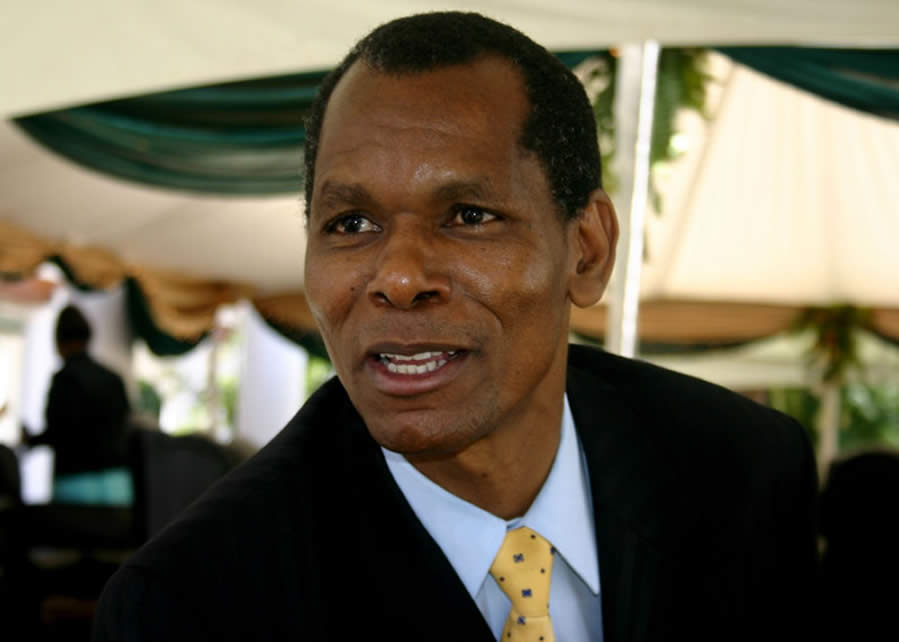
The Sunday Mail

The Zanu-PF Politburo is scheduled to meet in Harare this Wednesday with proposed amendments to the Indigenisation and Empowerment Act expected to be among the topmost agenda items. Although the agenda could not be immediately established, the proposals are likely to feature prominently following Cabinet’s decision to push the amendments.
Youth, Indigenisation and Economic Empowerment Minister Francis Nhema is set to present a position paper to the Politburo in line with a Cabinet directive.
It is, however, still unclear whether he will make preliminary submissions on progress so far or present the paper at a later date.
Minister Nhema could not be reached for comment last night.
Zanu-PF national secretary for administration and Presidential Affairs Minister Didymus Mutasa confirmed the meeting but refused to be drawn into discussing the agenda.
“The Politburo meeting is slated for Wednesday at 9.30am. We are encouraging all members to be there on time. I am not, however, at liberty to discuss the agenda,” he said.
Last week, Cabinet endorsed discussions around amendments to the Act and also directed Minister Nhema to work on aligning the law with the policy.
There are active moves within Government to review the indigenisation policy to clarify the implementation of the economic model.
Since the introduction of the Indigenisation and Empowerment Act of 2008, debate has continued on a key requirement for foreign-owned companies to cede 51 percent shareholding to locals.
Critics argued the regulations were “too stringent” while other stakeholders, including investors, sought clarity.
Government has now clarified that the policy seeks to ensure Zimbabwe asserts control over natural resources in mining, land-based enterprises and wildlife.
The authorities also made it clear that the threshold will not apply to other sectors as the objective is to empower Zimbabweans by including them in economic activities.
What remains now is to align the policy pronouncements with the law.
Recently, Information, Media and Broadcasting Services Minister Professor Jonathan Moyo revealed that the Production Sharing Model (PSM) and the Joint Empowerment Investment Model (JEIM) had been identified as the foremost vehicles through which the indigenisation policy could now be implemented.
PSM is a broad cover for an assortment of Production Sharing Agreements signed between governments and extraction companies concerning how much of a resource extracted from the country each will receive.
Under JEIM, outside mining, agriculture and particular tourism investments, locals will be encouraged to enter joint ventures as a way of generating capital to build wholly Zimbabwean-owned enterprises. Some critics have suggested that the proposed Production Sharing Model would allow investors to exaggerate their costs and to take an indefinite period to recover those costs before sharing profits.
Analysts last week dismissed the criticism, saying the investments would be made under contractual agreements stating the agreed amount of investment, the method as well as the time for recovering the cost of that investment.
In addition, under the Production Sharing Model production outputs can be shared and marketed independent of the investor.
The Sunday Mail Business Editor explained using the example of a gold mine where gold produced could be shared as opposed to monetary profits. Under the model, 100 percent ownership remains in the hands of Zimbabweans with investors simply coming in as contractors.
Harare-based economist Mr Trust Chikohora urged Government to move with speed in implementing the proposed amendments.
“It was long overdue for the country to come up with a diverse model that makes us a competitive investment destination on the globe.
“We need to be competitive because the reality is that not much Foreign Direct Investment has been coming to Zimbabwe compared to other countries in Africa. So we need to deal with the issues that militate against FDI and I think this model will attract investors.
“We hope this policy will be openly laid out and communicated to the people with one clear message with no confusing signals.”
Mr Witness Chinyama, another economist, said the model is a response to reality and, thus, should be adopted swiftly.
“There was also a wrong perception of indigenisation. So, the fact that it is being reviewed to bring clarity should bring good results.
“What authorities need to do now is move with speed to implement the policy.”
Another economist, who preferred anonymity, said lack of policy clarity and the use of the administrative discretion to implement policy had remained a major concern to investors. The economist said the Government should align all mining and land-related laws with the Indigenisation and Empowerment Act.
Regarding additional fiscal legislation, he advocated for the scrapping of mine ground rental fees and high mining royalties.
Last week, European Union Ambassador to Zimbabwe Mr Aldo Dell’ Ariccia supported Government’s position, saying it was important for Zimbabwe to create a positive environment for Foreign Direct Investment while protecting its national interests.




